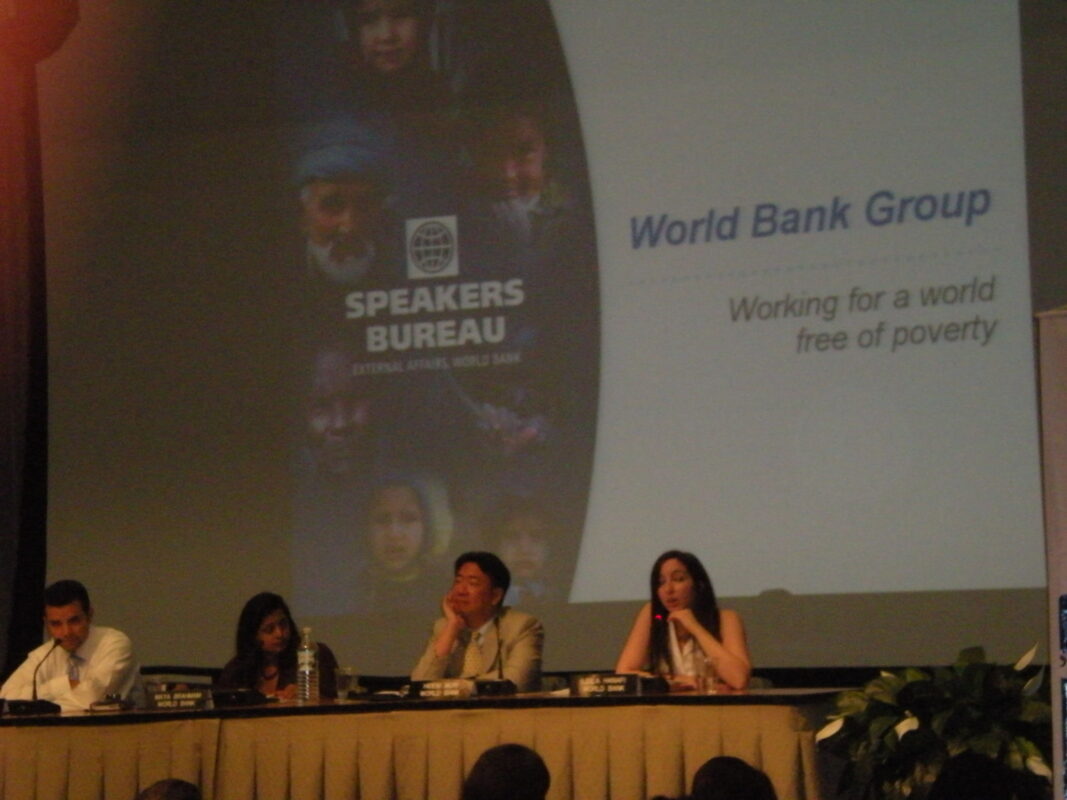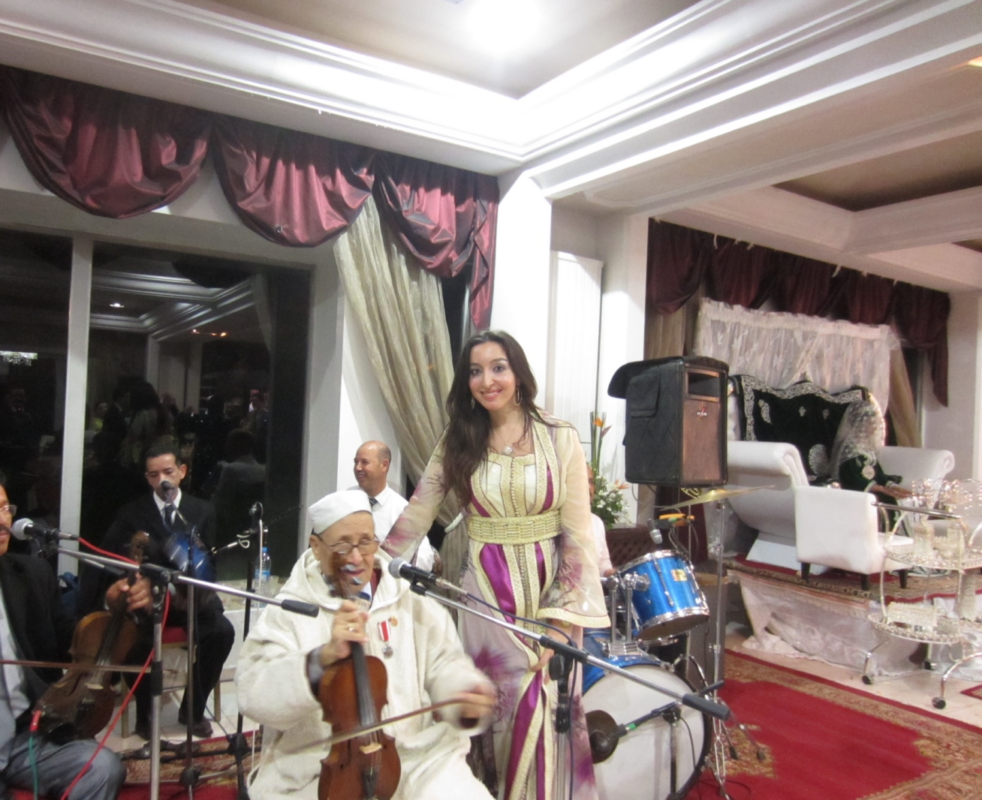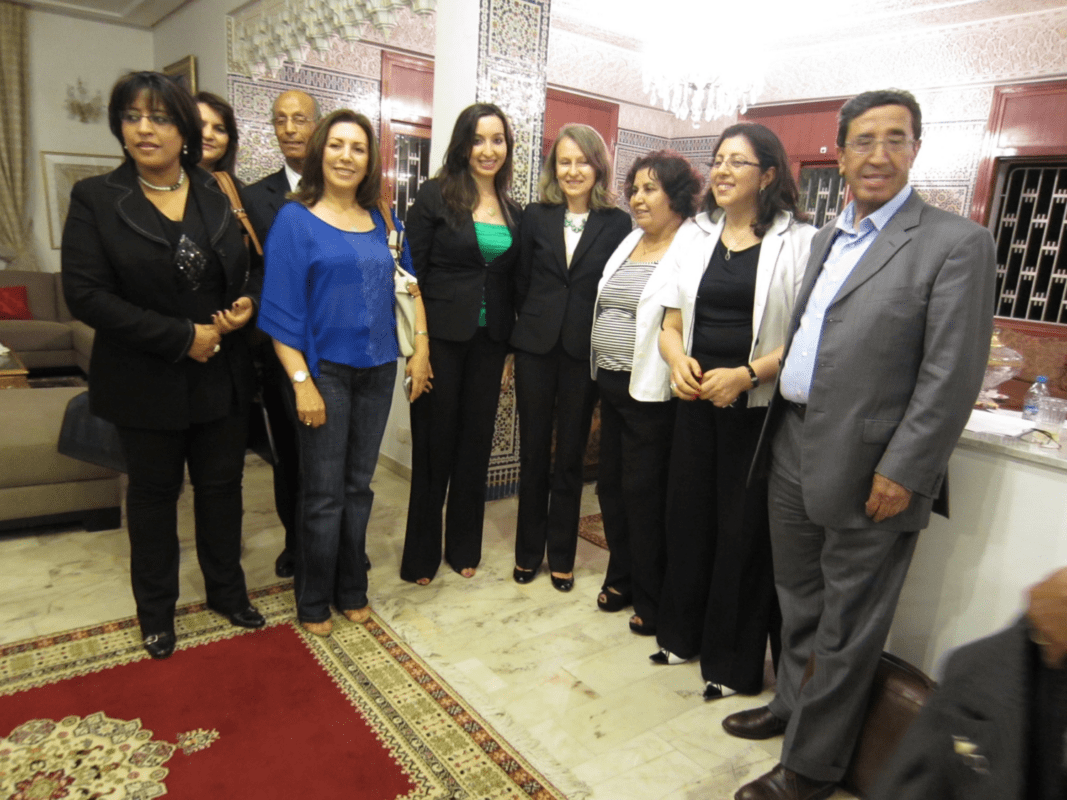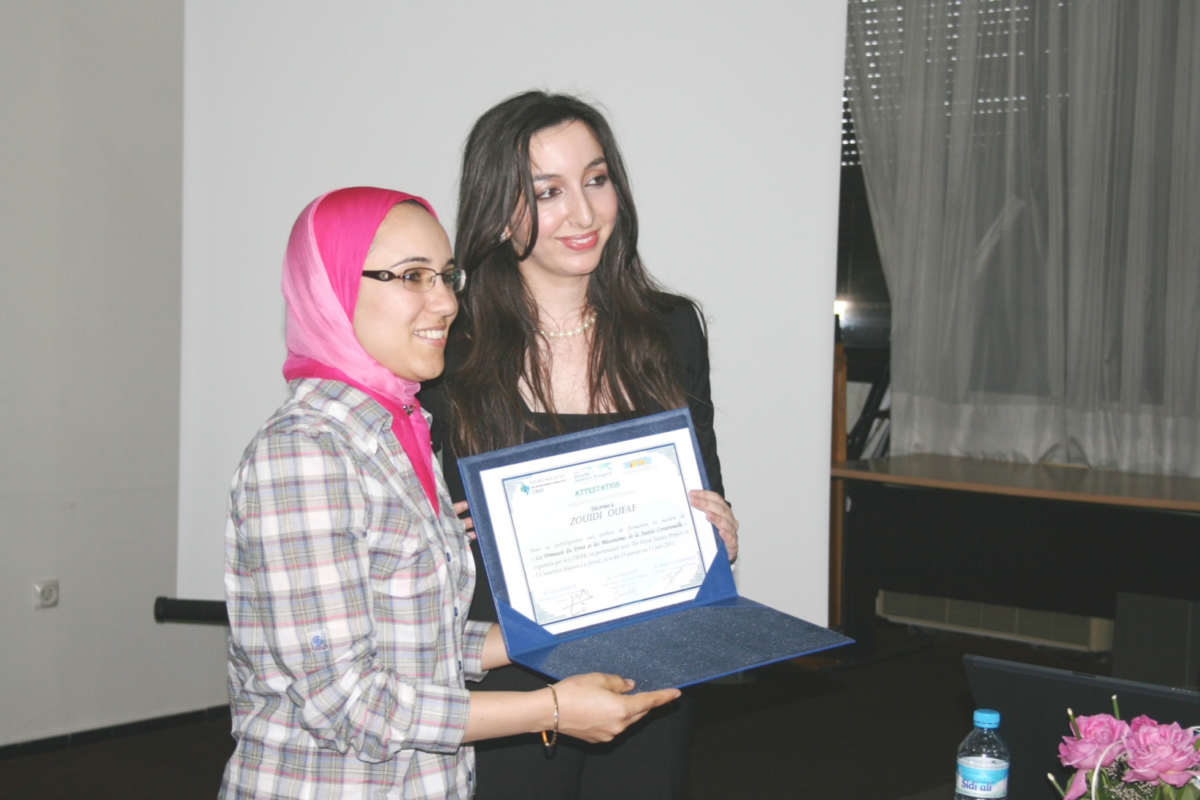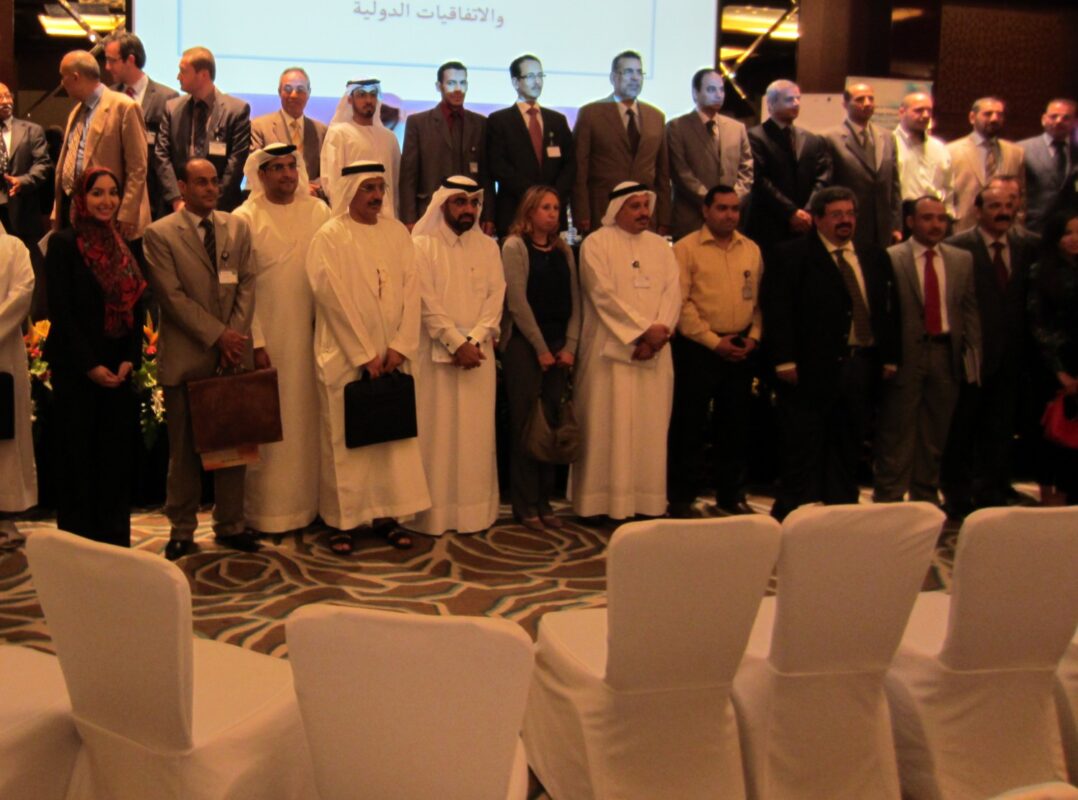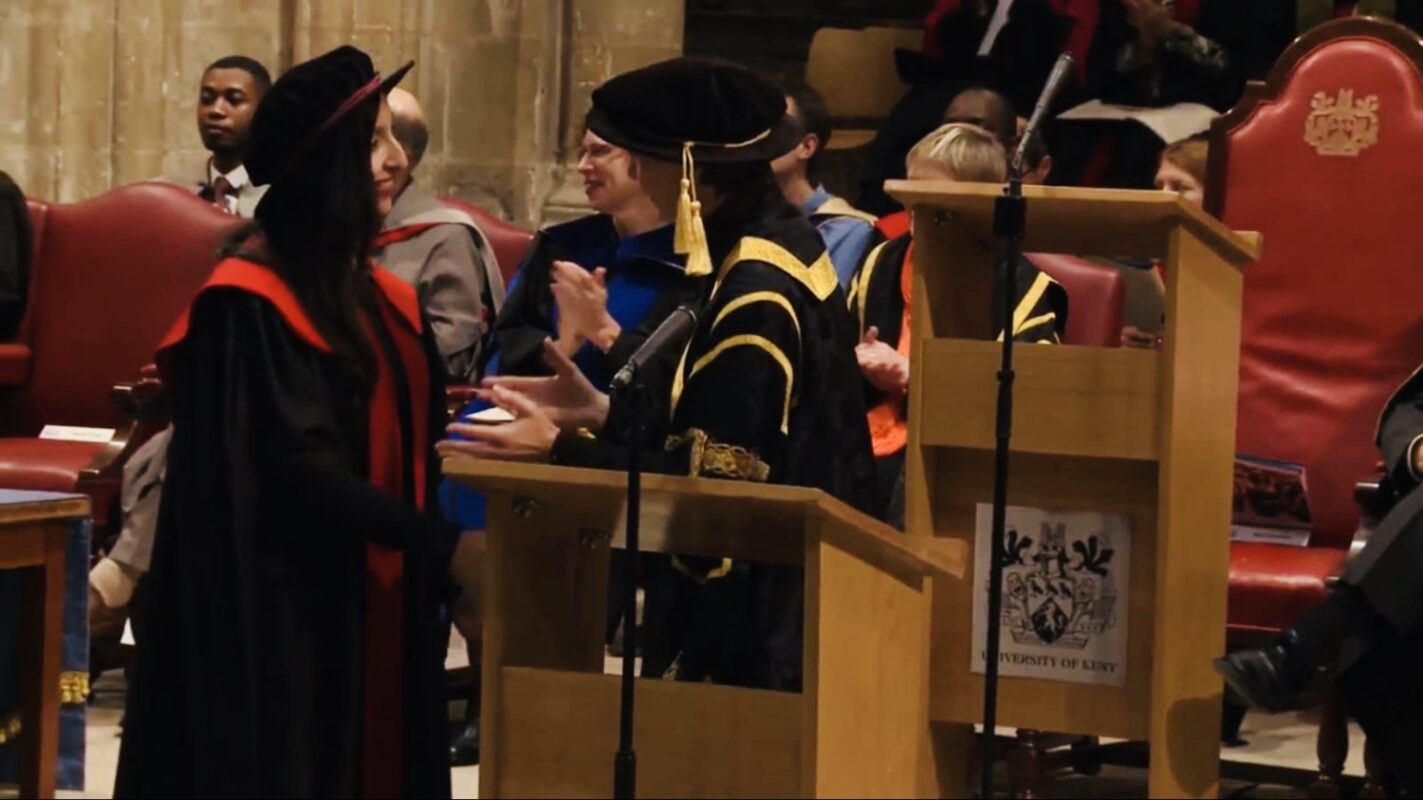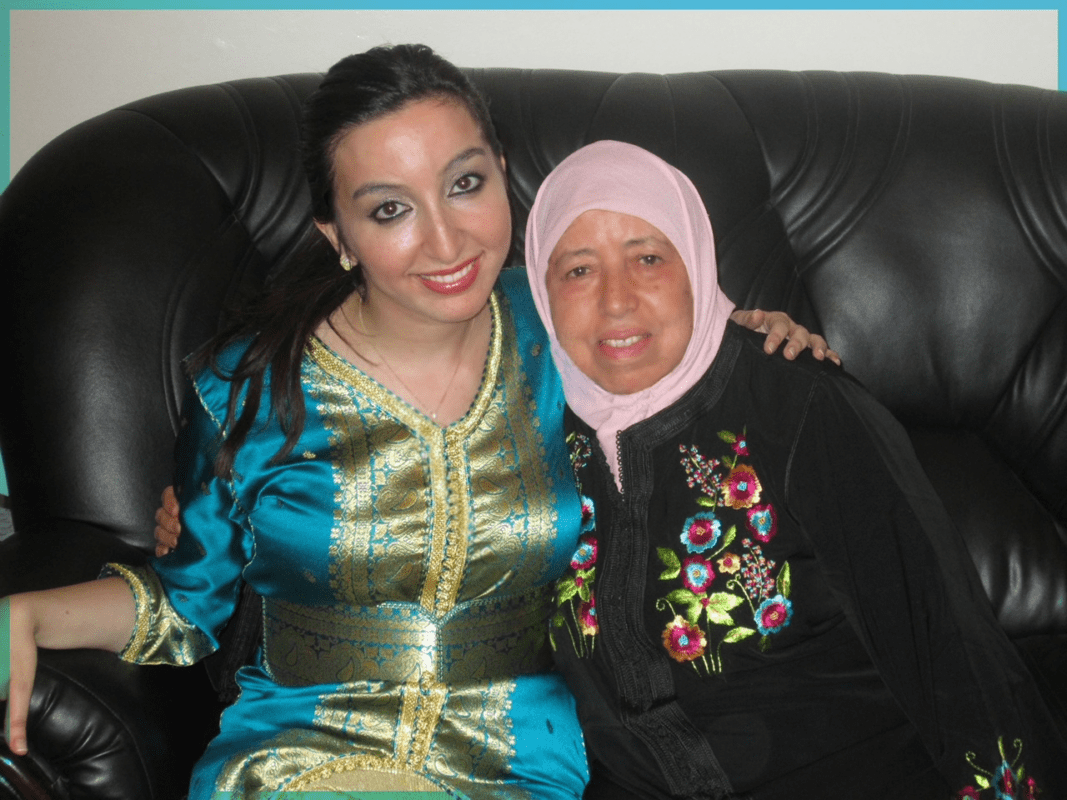Meet Dr. Leila Hanafi, an International Development Lawyer at The World Bank Group, where she works as senior advisor to the Vice President of Integrity, she is Adjunct Law Professor at George Washington University Law School. Leila is part of the Board of several organizations, including Muslim Americans in Public Service, the Moroccan American Legal Network, the International Center of Mediation & Arbitration, and POLO Women Powered Stories.
Who is Leila Hanafi?
A Moroccan American mom and international development lawyer and professor. My role today at the World Bank, an international financial institution, and specialized United Nations agency, covers a lot of complex legal issues around international law, internal policy, and development in our member countries. The World Bank’s mission is to fight poverty and to ensure shared prosperity for the world’s people. My own contribution to that noble mission is a very small one but it is very satisfying and fulfilling.
Generally, being a lawyer in development means looking at the big picture and working not just to deliver a day job but to work to help developing countries deliver on rule of law reforms. The intersection with academia and teaching is that it enables me to bridge the gap between research and practice in my day-to-day life and interactions with students, colleagues, and clients.
“Living abroad has given me the skills necessary to adapt to new languages and adapt to new cultures, and to witness the interrelatedness of countries across the globe”
How were you as a kid?
I was very flamboyant and attracted to learning about other cultures thanks to the international circles where I was raised, especially my passage in Madagascar during my father’s tenure with the United Nations was life changing. Since then, I have continued to pursue international interests. I always knew I wanted to pursue a career in international law and development. Living abroad has given me the skills necessary to adapt to new languages and adapt to new cultures, and to witness the interrelatedness of countries across the globe.
You are from Morocco, did that fact shape your life?
Absolutely, yes. Although Morocco has paved the way in the region in terms of its development journey, I have been disconcerted by the social disparities and the poverty due to underdevelopment that persists in my home country. I have also realized that I was privileged to have an international platform to amplify advocacy efforts for the groups I represent, especially legal empowerment of women. At a young age, I became passionate with advocacy efforts on legal empowerment and top on the list is the elimination discrimination against women in Morocco and globally. Being in DC, helped me advocate, intensely, and use my legal skills to move empowerment issues to the center of the development agenda, pushing the envelope and encouraging us to think of development in a more multidimensional way. For example, I was the winner of the highly competitive World Bank Middle East and North Africa Innovation Fund through which I led a legal empowerment initiative for young women in Morocco.
You were doctorated at the University of Kent, Law School (UK) with a full-merit doctoral scholarship and completed your undergraduate and graduate studies from George Washington University Law School, Georgetown University, why did you choose those courses of study?
My interests have always been at the intersection of law and international development. Basically, how to harness my legal education and skills beyond a law office and courtroom. Studying International law at the doctoral and research levels allowed me to expand my education to contribute to that vision of rule of law and people-centered justice to advance sustainable development and inclusive and resilient societies. Being a lawyer in international development means looking at the big picture and working not just to deliver a day job but to work with countries and governments deliver on rule of law and justice reform, using international frameworks like the United Nations Sustainable Development Goals (SDGs). My top SDGs are SDG 16 (Peace, Justice and Strong Institutions) and of course SDG 5 (Gender Equality).
"Being in DC, helped me advocate, intensely, and use my legal skills to move empowerment issues to the center of the development agenda, pushing the envelope and encouraging us to think of development in a more multidimensional way”
You are an international development lawyer, currently with the World Bank Group where you work as senior advisor to the Vice President of Integrity, and you also serve as the principal of ARPA International Law Group. Previously, you served in legal advisory roles to international NGOs, foreign governments, and United Nations agencies, including UNDP, UNOPS, and UN ESCWA. Prior to that, you held positions as Legal Commissioner in the Moroccan Government and you are an adjunct law professor at George Washington University, Law School in Washington DC. What´s the recipe for your success?
Determination, enhancing my strengths that set me apart, having mentors, and operating at the intersection of research and practice.
What are the biggest lessons you’ve learned over the years working for important organizations internationally?
I learned that their role can be instrumental to balance the conjuncture between country needs that are advanced by governmental and non-governmental stakeholders while concurrently advancing global lofty objectives on international development. The role of international organizations is helping to set the international agenda and facilitate cooperation and coordination among member nations. When it comes to international legal standards and their application, nationally, I learned that it’s quire complex and Morocco was my prime example when it comes to justice issues. . Both Moroccan domestic law and its international obligations demonstrate coalescence on several aspects of access to justice for all persons and the definition of justice itself. The perception of justice and access thereto in Morocco as shaped by the multifaceted legal system and its colonial, tribal, and religious influences, must adapt to international legal standards and that interface between international, national, and traditional justice is complex.
“I believe the presence of justice and the respect for the rule of law benefit ALL in society and make society stronger”
You are part of the Board of several organizations, including Muslim Americans in Public Service, the Moroccan American Legal Network, the International Center of Mediation & Arbitration, and POLO Women Powered Stories. You also serve on the KATERVA Global Awards Expert Panel. What ignites this drive in you?
My passion for development in general is anchored in my Moroccan roots and witnessing first-hand the dire need for a rights-based agenda in development efforts. I believe the presence of justice and the respect for the rule of law benefit ALL in society and make society stronger. My passion in life is to help to move legal empowerment issues to the center of the development agenda, pushing the envelope and encouraging us to think of development in a more rights-based way.
Tell us a little bit about POLO Stories, which is a global nonprofit film production platform dedicated to amplifying transformative stories about inspiring women and where you are the President.
POLO Stories is still an initiative in the pre-launch making phase and one that aims to expand an international development network of members and launch a film production platform dedicated to amplifying transformative stories about extraordinary women from low- and middle-income countries and their social contribution to their communities. We hope our stories will empower and inspire, not only other women but also the rest of the world. POLO Stories creates, promotes, and disseminates documentaries focused on women’s empowerment using a multi-disciplinary lens, with an emphasis on social impact. We work in partnerships with other like-minded organizations to create awareness, inspire others, and maximize synergies across the board.
What does a normal workday look like for you?
I think post-COVID workdays have been a shift for many of us, working mothers. In my case, my workday is a calibration act between family obligations and work and teaching commitments.
“Having mentors early on was a guiding compass in my professional development”
What do you love most about your job? & What is the most difficult part?
Working in law and development means looking at the big picture and working not just to deliver a day job but to work with colleagues across the globe to adapt international standards to specific country contexts . I work in the Integrity Vice Presidency that leads engagement across the global anti-corruption agenda and more specifically, investigates and pursues sanctions related to allegations of fraud and corruption in World Bank Group-financed projects. My favorite Sustainable Development Goals is SDG 16 (Peace, Justice and Strong Institutions). The difficult part is to strive every day to make a reality of such international goals . The World Bank’s mission is to fight poverty and to ensure shared prosperity for the world’s people. My own contribution to that noble mission is a very small one but it is very satisfying and fulfilling .
What is one strategy that has helped you to grow in your professional ladder?
Having mentors early on was a guiding compass in my professional development. Two mentors, I will never forget: The late Ambassador Clovis Maksoud, the founding member of the Georgetown University Center for Arab Studies. This assignment transformed my life in many ways as it was a truly profound experience to work with one of the finest legal minds but also with an outstanding human rights activist. Clovis Maksoud's Academic career centered around subjects of International Law, the Middle East, and the Global South. His decades of experience in law and diplomacy gave him a unique and practical approach to his work.
The second one is Professor Rosa Celorio, George Washington University Law School. She is the embodiment of what I aspired to be, a practitioner and academic. At the time, Professor Celorio was senior Attorney for the Inter-American Commission on Human Rights (IACHR), one of the main organs of the regional human rights protection system for the Americas while juggling teaching advanced international law courses at George Washington University Law School. Her international background and profile inspired me to follow in her footsteps and my joining the International and Comparative Law program at GW Law School.
“I learned to steer away from setting unrealistic expectations for myself and instead I learned to “prioritize” because fulfillment comes from a combination of professional and personal aspects”
Do you have a book, podcast, or talk that’s had a deep impact on your thinking?
Not one book but I will say that history books about Berber women warriors have deeply impacted and empowered me as a woman of Amazigh roots. I grew up with an aspiration to be a woman of substance because I saw all these women throughout Moroccan history. Amazigh people were led by female military leaders in the 7th century in Numidia which is present day Morocco, Algeria, Tunisia, and Libya. The military leader who marked the history of the Amazigh in North Africa was Kahina , a Berber warrior-queen who led her people against the Arab Invasion of North Africa in the 7th century also known as Dihiya, or Tihiya, different versions which literally mean “beautiful.” She led several battles against the Romans and Arabs during the 7th century.
Do you have any philosophy that guides your career decisions?
What guides me is my religious grounding which helps me stay focused and leave my destiny in God’s hands
Everybody has had dark moments in their lives, what have you done to get out of that phase?
To surround myself with positive people in both personal and professional circles and steer away from any negative influence that might tamper with my emotional sensitivity in that period.
What do you like to do in your spare time?
My spare time is almost fully focused on family and especially our two children and that brings me utmost joy
Many authors say women can and must strive to have everything – a shining career, a blossoming family life and a perfectly balanced lifestyle all at once, others point out that– then women are placing unrealistic expectations on themselves if they believe they can have it all, you have kids and you are married, so according to your experience, what do you think about these statements?
I think these statements would apply differently from one woman to another. As far as I’m concerned, I learned to steer away from setting unrealistic expectations for myself and instead, I learned to “prioritize” because fulfillment comes from a combination of professional and personal aspects. Emphasized the importance of living a balanced life in which one makes priority for things besides a professional career.
What are your plans for the future?
There is so much more to learn. This year, especially after the COVID pandemic began, I resolved that connectivity with other parts of the world through technology is paramount and I plan to leverage it further to expand my rule of law work. There are two things I’m passionate about promoting more of in the rule of law sector. The first is more women focused efforts and the other is increasing the role of Diaspora’s in this field. In 2011, Morocco took the unprecedented step of providing their Diaspora with guaranteed rights under their new constitution. The Diaspora is now pioneering its footprint in the country’s development and I’m passionate about contributing to the cross-fertilization of experiences between the Moroccan diaspora and Morocco, which I started years ago during my tenure as Commissioner in the Moroccan Commission on National Dialogue on Constitutional Reforms.
There is still the glass ceiling for women in the world: Fewer opportunities, jobs underpaid just for that fact of being a woman, etc. Have you experimented with the glass ceiling? If yes, what are the biggest challenges you have faced and how have you overcome them?
I did give my field of work, but I didn’t give up. I see diversity and inclusion as an indivisible part of my life and I have a duty to move advocacy efforts, front and center. I serve now as a champion within the World Bank Group for Diversity Equity and Inclusion to help, among other things, bring equitable opportunities for women in the workplace.
What tips, can you give to young girls who want to become international lawyers you?
To find a branding for yourself and to reach out to professionals in the field of law, list all possible specializations in their career path. Shadow them. Then, make a decision about what you want to do.
I think in your position, many people may have the wrong idea of who you are, and what do you (professionally), with this idea in mind, what is being Leila and what´s not?
Being Leila, is being a fusion of the global south and the West and leveraging my international career and positioning at the global level to contribute to enhancing the legal field especially women’s role in my part of the world-Arab and African countries to exchange knowledge and experiences on the key barriers, lessons, pathways and models to women in the legal profession and especially their ’ effective participation and leadership in the justice sector.
Who is the woman you admire the most and why?
My mother and I am eternally indebted to her. She showed me the way to not using excuses about my gender or family responsibilities to say I can’t do something. She never took “No” for an answer and really pushed me to excel academically and professionally. She was a feminist without even knowing it.
Name: Dr. Leila Hanafi
Sector: Law
Company: The World Bank Group/ George Washington University Law School
Designation: International Development Lawyer / Adjunct Law Professor
Country: Morocco/USA
Social media:

